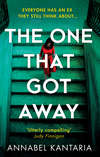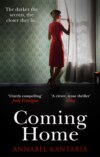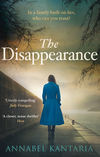Читать книгу: «I Know You»
Что-то пошло не так, попробуйте зайти позже
609,75 ₽
Начислим
+18
Покупайте книги и получайте бонусы в Литрес, Читай-городе и Буквоеде.
Участвовать в бонусной программеВозрастное ограничение:
0+Дата выхода на Литрес:
28 декабря 2018Объем:
302 стр. 4 иллюстрацииISBN:
9780008238698Правообладатель:
HarperCollins













